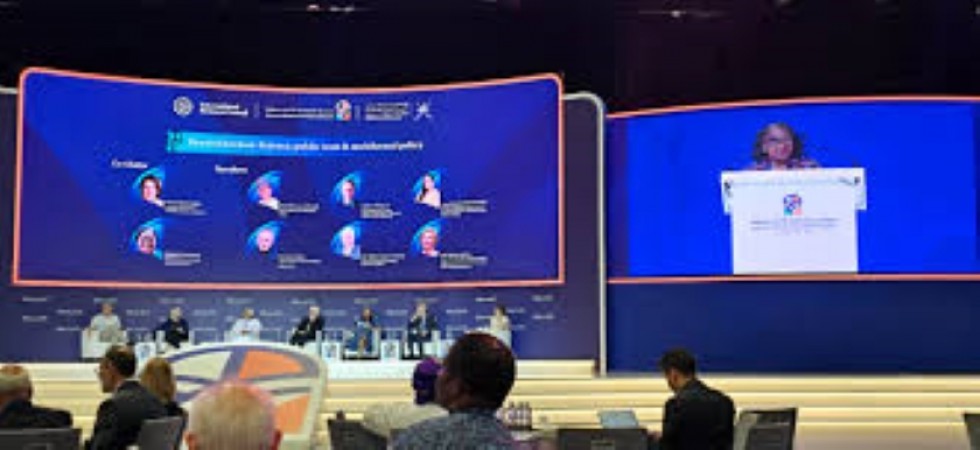
The African Academy of Sciences (AAS) has reaffirmed the critical role of science in shaping global development and peace during the International Science Council’s (ISC) Muscat Global Knowledge Dialogue, held from January 26-28, 2025. The event brought together scientists, policymakers, and academics to discuss how scientific advancements can drive equitable progress and strengthen multilateral cooperation.
Leading the final plenary session, Beyond Borders: Science, Public Trust & Multilateral Policy, Dr. Peggy Oti-Boateng, Executive Director of the AAS, emphasized the need for evidence-based decision-making to tackle pressing global issues, including climate change, health disparities, and economic inequalities. She stressed that science must be embedded in governance, as it offers innovative and sustainable solutions that transcend national borders.
One of the key outcomes of the event was the adoption of the Muscat Declaration, a strategic framework advocating for science as a global public good. The declaration outlines priorities such as increasing investment in under-resourced regions, particularly in Africa, promoting open-access scientific knowledge, and ensuring the greater inclusion of women and marginalized communities in research and leadership roles. These commitments align with global efforts to foster equitable scientific progress, ensuring that no region—especially Africa—is left behind.
As Africa continues to position itself as a key player in global scientific discourse, the AAS is leading efforts to empower researchers through initiatives such as the African Research Initiative for Scientific Excellence (ARISE) and the African Postdoctoral Training Initiative (APTI). These programs provide funding, mentorship, and collaboration opportunities, enabling African scientists to actively contribute to solving global challenges. Dr. Oti-Boateng highlighted the importance of these initiatives, stating, “For too long, Africa has been seen as a recipient of scientific knowledge rather than a contributor. Our goal at AAS is to change this narrative by strengthening homegrown research and innovation capabilities.”
Another major theme discussed at the Muscat Dialogue was the growing need for public trust in science. With misinformation and scepticism towards scientific research on the rise, institutions like the AAS are advocating for stronger engagement between scientists and the public to ensure that scientific knowledge is accessible, reliable, and actively integrated into societal development.
As Africa’s research institutions gain global recognition, the AAS remains committed to fostering an environment where scientific inquiry leads to real-world progress, bridging inequalities, strengthening international collaboration, and building a sustainable future for all.
Article by RB Correspondent
Photo/Google

Comment